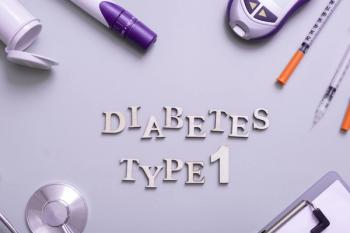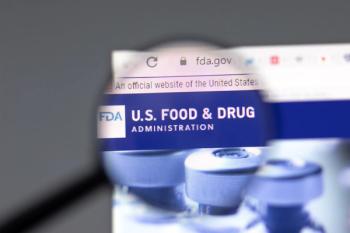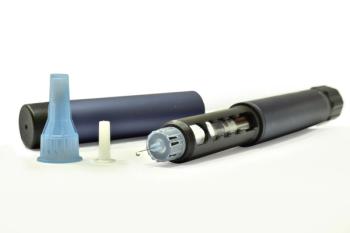
- Drug Topics March 2021
- Volume 165
- Issue 3
Multiple Sclerosis: Treatment Options and Counseling Tips
Pharmacists can play an important role as part of the interdisciplinary care team.
Multiple sclerosis (MS) is a disease of the central nervous system (CNS) that affects almost 1 million individuals in the United States, according to the National Multiple Sclerosis Society.1,2 It is an autoimmune disease in which the immune system attacks the protective sheath (myelin) that covers nerve fibers and causes communication problems between the brain and the rest of the body.1,3 Unfortunately, there is no cure for MS but there are medications that can modify the disease course, treat relapses, and manage symptoms. Nonpharmacologic therapies including lifestyle modifications and physical therapy also are an important part of comprehensive care for MS.
Risk Factors, Symptoms, and Diagnosis
The cause of MS remains unknown but evidence suggests it is triggered by a combination of environmental and genetic risk factors (eg, family history).3 Most individuals are diagnosed between the ages of 20 and 50 years, and women are 2 to 3 times more likely than men to have MS.4 Infections such as Epstein-Barr virus and certain autoimmune diseases (eg, type 1 diabetes) may increase the risk of developing MS.4 Other risk factors that may contribute to an increased risk of MS include living farther from the equator, low vitamin D levels, and smoking.3
Signs and symptoms of MS can vary from individual to individual and throughout the disease course.5
Multiple Sclerosis Symptoms5
Most Common Symptoms
- Fatigue
- Numbness or tingling
- Walking problems
- Weakness
- Spasticity
- Vision problems
- Dizziness and vertigo
- Bladder, sexual, and bowel dysfunction
- Pain
- Cognitive changes
- Depression
Less Common Symptoms
- Speech problems
- Trouble swallowing
- Tremor
- Seizures
- Breathing problems
- Hearing loss
Treatment Options and Drug Pipeline
Exacerbations of MS caused by an inflammation of the CNS that lasts at least 24 hours and are separated from a previous attack by at least 30 days are typically treated with high-dose corticosteroids (eg, prednisone, methylprednisolone).3,6 Pharmacists can educate patients that corticosteroids may cause insomnia, hypertension, increased blood glucose levels, psychiatric issues, and weight gain.3 Exacerbations can range from mild to severe enough to affect daily activities.6
Disease-modifying therapies (DMTs) reduce the frequency and severity of relapses, and evidence demonstrates these medications also reduce the development of new areas of damage in the brain and spinal cord and delay disability progression.7 Treatment options include oral medications, injectables, and infusions. The Multiple Sclerosis Coalition recommends early and ongoing treatment with DMTs.8 There are a variety of FDA-approved DMTs available and pharmacists can counsel patients about the different options and potential adverse effects.
Oral Treatments
Ozanimod (Zeposia; Bristol Myers Squibb) is an oral medication approved in 2020, and it is the only DMT that is a sphingosine-1 phosphate receptor modulator that offers patients an initiation with no genetic test and no label-based first-dose observation required.7,9 It is also approved for active secondary progressive disease (worsening condition).7,9 Additionally, evidence demonstrates that ozanimod was more effective at reducing the risk of disease relapse compared with interferon beta-1a.9 Fingolimod (Gilenya; Novartis) is an oral medication and it is the only DMT approved for use in children 10 years and older.7 Other oral treatment options include dimethyl fumarate (Tecfidera; Biogen) and diroximel fumarate (Vumerity; Biogen), teriflunomide (Aubagio; Sanofi), cladribine (Mavenclad; Merck), and siponimod (Mayzent; Novartis).7
Intravenous Infusion Treatments
Ocrelizumab (Ocrevus; Genentech) is a monoclonal antibody and intravenous (IV) infusion therapy that is the first and only DMT approved to treat both the relapse-remitting and primary progressive forms of MS in adults.7 Other IV infusion treatments include alemtuzumab (Lemtrada; Sanofi Genzyme), generic mitoxantrone, and natalizumab (Tysabri; Biogen).7
Injectable Treatments
Injectable DMT treatment options include interferon beta-1a (Avonex; Biogen), interferon beta-1b (Betaseron; Bayer), glatiramer acetate (Copaxone; Teva Neuroscience), interferon beta-1b (Extavia; Novartis), glatiramer acetate (Glatopa; Sandoz), peginterferon beta-1a (Plegridy; Biogen), and interferon beta-1a (Rebif; EMD Serono and Pfizer). On February 1, 2021, the FDA approved a new route of administration for peginterferon beta-1a as an intramuscular injection for the treatment of relapsing forms of MS, with evidence demonstrating fewer injection site reactions than the subcutaneous formulation approved in 2014.10 There are promising MS drugs in the pipeline (see Table 2).11,12
Safety Considerations
Pharmacists should educate patients about the black box warnings associated with DMTs. Avonex, Rebif, Plegridy, Betaseron, and Extavia include warnings about depression, suicide, cardiovascular problems, hepatotoxicity, and allergic reactions.7 Injection site reactions including skin infections have been reported with Rebif and Plegridy so it is important to rotate injection sites regularly.7 Aubagio can cause hepatotoxicity, and it is important to have blood tests performed 6 months before initiating therapy and once a month for 6 months after starting treatment.7 Patients taking Aubagio should also use effective birth control and receive a pregnancy test before starting treatment since it can cause birth defects.7 Gilenya, Mayzent, and Zeposia can cause bradycardia, so it is important for patients to have an electrocardiogram before starting the first dose of these medications.7 Certain DMTs (eg, Tecfidera, Vumerity, and Tysabri) may increase the risk of a rare brain infection called progressive multifocal leukoencephalopathy, which usually occurs in patients who are immunocompromised.7
Other medications used to manage the signs and symptoms of MS may include antidepressants (eg, citalopram), pain management therapies (eg, duloxetine), and bowel dysfunction treatments (eg, docusate).6 Physical and occupational therapy can play an important role with stretching and strengthening exercises, and various devices can help patients perform daily tasks more easily.6
Table 2: Pipeline MS Drugs11,12
*Indicates new drug application
Lifestyle Modifications
There is little evidence to support a specific diet for patients with MS but it is important to eat a well-balanced diet.13 Since evidence suggests vitamin D deficiency may be associated with MS, it is important to ensure that patients have appropriate vitamin D levels.13 Food sources that contain vitamin D include oily fish, beef liver, egg yolks, pork, and fortified foods such as milk and juices. However, most individuals are unable to obtain sufficient vitamin D from diet so supplementation is usually needed.13 Exercise and physical activity are beneficial in patients with MS and can improve strength, bladder and bowel function, fatigue, mood, cognitive function, bone density, and flexibility. Physical activity can include gardening, household chores, cooking, walking the dog, and taking the stairs. Patients can consult with a physical therapist to help develop an individualized exercise program.13 Since smoking can cause worsening disease progression in patients with MS, pharmacists can play an important role in educating patients about smoking cessation therapy options.14
Pharmacists can counsel patients about the following healthy sleep habits that can help improve MS symptoms: developing a bedtime routine; avoiding caffeine in the afternoon and evening; avoiding screen time before sleep; limiting fluids close to bedtime; practicing relaxation techniques; and making sure the bedroom is cool, dark, and quiet.13 Individuals with MS can experience temporary worsening of symptoms when the weather is very hot or humid, and certain activities such as sunbathing, exercise, and hot showers can also have these effects.13
References:
- National Multiple Sclerosis Society. Definition of MS. Accessed January 31, 2021.
https://www.nationalmssociety.org/What-is-MS/Definition-of-MS - Wallin MT, Culpepper WJ, Campbell JD, et al. The prevalence of MS in the United States: a population-based estimate using health claims data. Neurology. 2019;92(10):e1029-e1040. doi:10.1212/WNL.0000000000007035
- Mayo Clinic. Multiple sclerosis. Updated June 12, 2020. Accessed January 31, 2021.
https://www.mayoclinic.org/diseases-conditions/multiple-sclerosis/symptoms-causes/syc-20350269 - National Multiple Sclerosis Society. Diagnosing MS. Accessed February 1, 2021.
https://www.nationalmssociety.org/Symptoms-Diagnosis/Diagnosing-MS - MS symptoms. National Multiple Sclerosis Society. Accessed February 1, 2021.
https://www.nationalmssociety.org/Symptoms-Diagnosis/MS-Symptoms - Comprehensive care. National Multiple Sclerosis Society. Accessed February 1, 2021.
https://www.nationalmssociety.org/Treating-MS/Comprehensive-Care - Disease-modifying therapies for MS. National Multiple Sclerosis Society Updated June 2020. Accessed February 1, 2021.
http://www.nationalmssociety.org/nationalmssociety/media/msnationalfiles/brochures/brochure-the-ms-disease-modifying-medications.pdf - The use of disease-modifying therapies in multiple sclerosis: Principles and current evidence. Multiple Sclerosis Coalition. Updated September 2019. Accessed February 1, 2021.
https://www.nationalmssociety.org/NationalMSSociety/media/MSNationalFiles/Brochures/DMT_Consensus_MS_Coalition.pdf - Drug trial snapshots: Zeposia. Food and Drug Administration. Updated April 1, 2020.Accessed February 2, 2021.
https://www.fda.gov/drugs/development-approval-process-drugs/drug-trials-snapshots-zeposia - Biogen announces FDA approval of Plegridy (peginterferon beta-1a) intramuscular administration for multiple sclerosis. News release. Biogen. February 1, 2021. Accessed February 2, 2021.
https://www.globenewswire.com/news-release/2021/02/01/2167195/0/en/Biogen-Announces-FDA-Approval-of-PLEGRIDY-peginterferon-beta-1a-Intramuscular-Administration-for-Multiple-Sclerosis.html - Janssen submits Ponesimod new drug application to the U.S. FDA for treatment of adults with relapsing multiple sclerosis. News release. Janssen. June 1, 2020. Accessed February 2, 2021.
https://www.janssen.com/janssen-submits-ponesimod-new-drug-application-us-fda-treatment-adults-relapsing-multiple-sclerosis - TG Therapeutics announces positive topline results from the ULTIMATE 1 and II phase 3 studies evaluating Ublituximab monotherapy for the treatment of patients with multiple sclerosis. News release. TG Therapeutics. December 10, 2020. Accessed February 2, 2021.
https://ir.tgtherapeutics.com/news-releases/news-release-details/tg-therapeutics-announces-positive-topline-results-ultimate-i-ii - Diet, exercise, & healthy behaviors. National Multiple Sclerosis Society. Accessed February 2, 2021.
https://www.nationalmssociety.org/Living-Well-With-MS/Diet-Exercise-Healthy-Behaviors - Multiple sclerosis and smoking. Cleveland Clinic. Accessed February 2, 2021.
https://my.clevelandclinic.org/departments/neurological/depts/multiple-sclerosis/ms-approaches/ms-and-smoking
Articles in this issue
almost 5 years ago
Discussing Pain Management Options With Patientsalmost 5 years ago
Vericiguat (Verquvo) for Heart Failure With Reduced Ejection Fractionalmost 5 years ago
Leveraging New Technologies to Prevent Drug Shortagesalmost 5 years ago
Tips for Optimizing Pharmacy Taxesalmost 5 years ago
Women Pharmacists Are Leading Successful COVID-19 Vaccination Programsalmost 5 years ago
Improve Immunization Efficiencies With Automationalmost 5 years ago
Women in Pharmacy Making Strides to Close the Leadership GapNewsletter
Pharmacy practice is always changing. Stay ahead of the curve with the Drug Topics newsletter and get the latest drug information, industry trends, and patient care tips.























